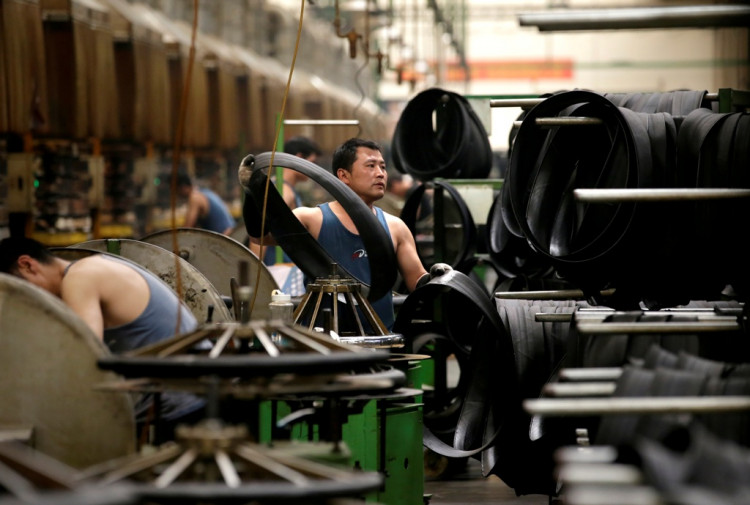China's factory sector is producing goods in expanded capacity in August, according to the Caixin/Markit factory Purchasing Managers' Index. The trend was significant since the manufacturing activity expanded despite the ongoing China-US trade dispute.
The PMI was 50.4 in August compared to the 49.9 in July. The figure has even beat expectations as analysts polled by Reuters only expected a PMI score of 49.8.
Other remarkable scores are on new orders which remained in expansion territory in August despite falling a few points from July. This trend indicated that there had been a flat demand for manufactured products imported from China. Specifically, there may have been a waning foreign demand as the China-US trade relationship remains unpredictable, this was according to Zhengsheng Zhong, director of macroeconomic analysis at CEBM Group.
Caixin/Markit's PMI surveyed businesses comprised of state-owned enterprises, as well as small and medium-sized firms. The PMI chose to survey such businesses as they are among the significant indicators of how economies are performing.
In that regard, China's factory sector is still showing positive signs of a market resilient against international pressures. This is something that cannot be said about South Korea, Japan, and Taiwan which all showed shrinking factory activity.
Even India, which was supposed to be the third economic Asian powerhouse by now, reflected the slowest expansion in factory activity The demand has also been at its lowest in 15 months while output growth was at the weakest in a year.
In Japan's case, the situation is not entirely due to the China-US trade dispute. The world's third-largest economy plunged for an eighth month in July. While surveys showed that the trade war has an impact on this, the decline is attributed largely to the end of construction ahead of the 2020 Tokyo Olympic Games. The country has also an impending sales tax hike due in October. With all this, observers were keen to say that Japan may see a recession in the months to come.
Meanwhile, there had also been a widespread decline in the Eurozone with market observers expecting an intervention by the European Central Bank in the coming weeks. In the United Kingdom, manufacturing plunged to its lowest level in August since July of 2012. Unlike with other regions with decline somehow blamed in the China-US trade dispute, the inactivity in the U.K. was because of the looming Brexit. A survey found that customers are no longer keen to get supplies from British manufacturers to avoid possible issues post-Brexit.





